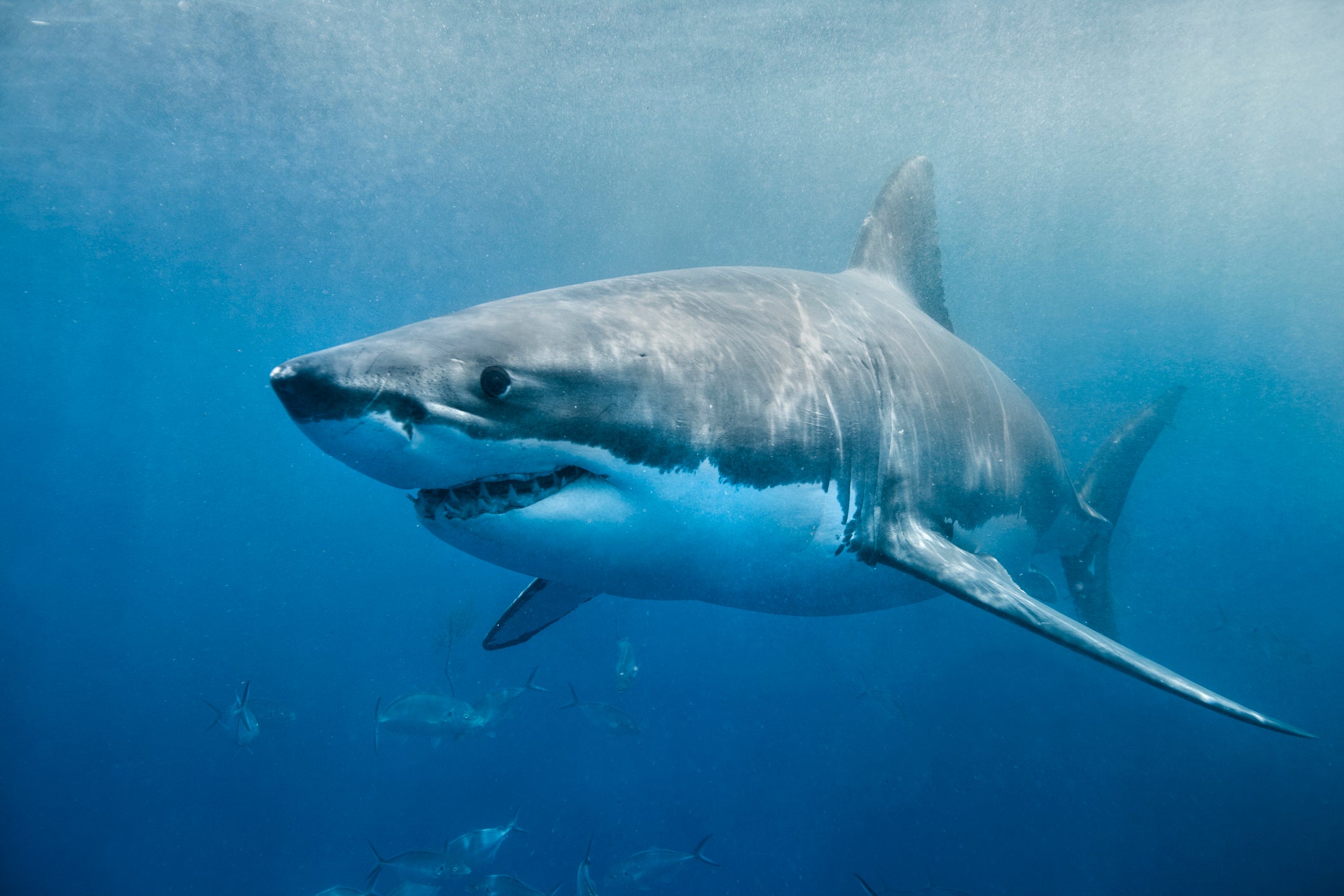Massive great white shark tracked off Virginia’s Chesapeake Bay
The 13ft long white shark is heading south to winter feeding grounds

Your support helps us to tell the story
From reproductive rights to climate change to Big Tech, The Independent is on the ground when the story is developing. Whether it's investigating the financials of Elon Musk's pro-Trump PAC or producing our latest documentary, 'The A Word', which shines a light on the American women fighting for reproductive rights, we know how important it is to parse out the facts from the messaging.
At such a critical moment in US history, we need reporters on the ground. Your donation allows us to keep sending journalists to speak to both sides of the story.
The Independent is trusted by Americans across the entire political spectrum. And unlike many other quality news outlets, we choose not to lock Americans out of our reporting and analysis with paywalls. We believe quality journalism should be available to everyone, paid for by those who can afford it.
Your support makes all the difference.A massive 13ft-long great white shark nicknamed Bob by researchers has been tracked off the coast of Virginia.
The apex predator has been travelling steadily south along the US east coast, with previous pings recorded off Cape Cod, Massachusetts in September, and near the New Jersey coast on 21 October.
The latest ping came on 23 October near the mouth of Chesapeake Bay, according to Bob’s OCEARCH tracking map.
A ping takes place when the shark’s dorsal fin is above water long enough for its position to be captured via satellite.
Bob, who is named after OCEARCH’s chief scientist Robert Hueter, weighs in at more than 1,300 pounds.
Bob is an adult male white shark that measured 13 feet, four inches when it was initially tagged by researchers off the coast of Nova Scotia, Canada, in September 2021.
The sharks, which can grow to be 20ft in length, are currently migrating south to reach their winter forage grounds, which stretch from North Carolina down to Florida.
During the summer, the sharks turn back around and head towards Nova Scotia. Last winter Bob swam as far south as St Augustine, Florida, before heading back north.
OCEARCH is a non-profit organisation that tags sharks and other animals, including seals and dolphins, in order to carry out research. They also take biological samples, such as blood and tissue, from the sharks before releasing them into the wild.



Join our commenting forum
Join thought-provoking conversations, follow other Independent readers and see their replies
Comments